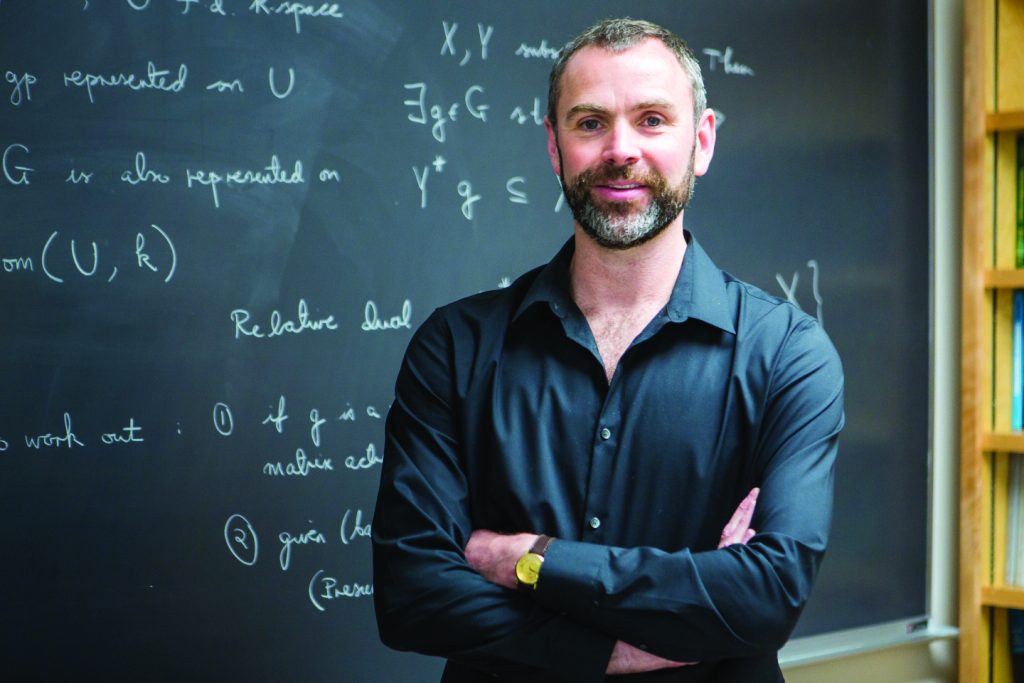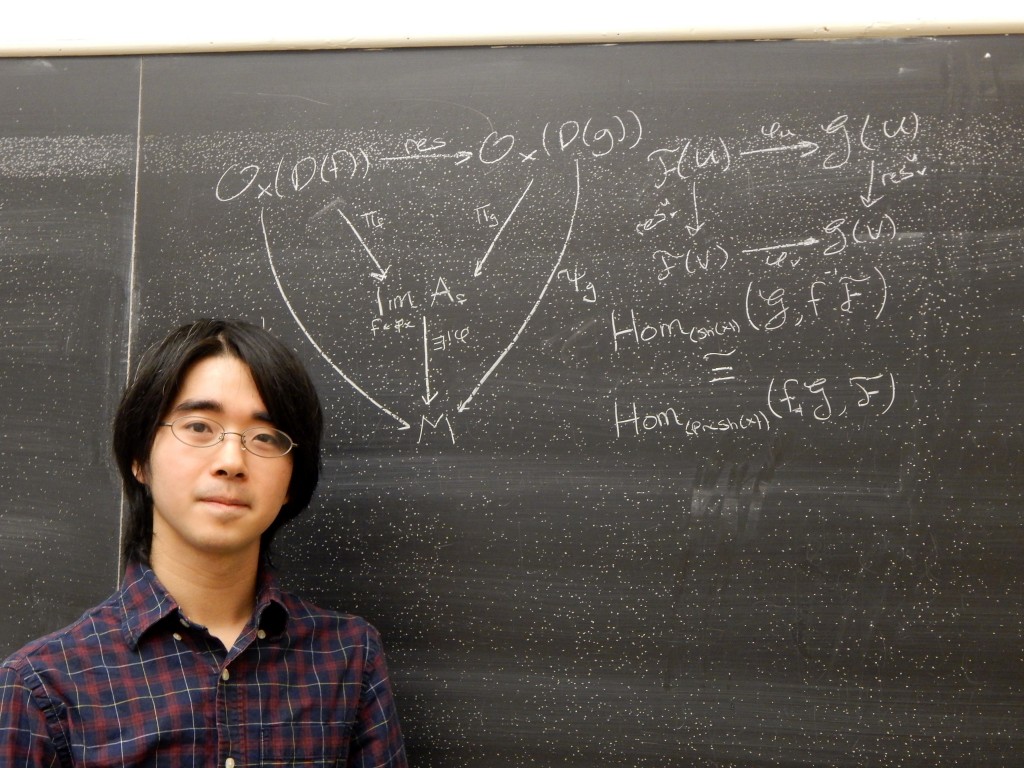Faculty mentorship, research and fellowships help prepare Allegheny senior for the next chapter
With not one but TWO senior comps to finish (one in physics and one in math) before becoming an official member of the Bicentennial graduating class, one would think Erin Brown had enough on her mind at the end of the semester.
But in March, Brown, a physics and mathematics double major with an English minor, also learned that she had received two prestigious honors.
The National Science Foundation awarded Brown an honorable mention in the prestigious Graduate Research Fellowship Program, which provides fellowships to individuals selected early in their graduate careers based on their demonstrated potential for significant achievements in science and engineering.
Shortly after receiving that news, she learned that she had received the 2015-16 Enhancing Diversity in Graduate Education–in science, technology, engineering and mathematics (EDGE-STEM) Doctoral Fellowship at Stanford University. She was nominated for this award by the Stanford School of Engineering based on her record of extraordinary academic accomplishment and her potential to contribute to the diversity of her program and academic field. This fellowship will provide Brown with a stipend and research and travel funds.
But these are not the first honors for Brown. In 2014, she received a Goldwater Scholarship, which is awarded to only 300 students annually, from an applicant pool of 1,200 to 1,500. The prior year, she received a Goldwater Scholarship honorable mention.
Brown, from Gainesville, Ga., has been accepted to Stanford’s Ph.D. program in Computational and Mathematical Engineering and will attend in the fall. We recently spoke to her about these honors and how Allegheny helped to shape her future:
How does it feel to receive these prestigious recognitions?
It is a great honor. Allegheny allowed me to become involved in research during my freshman year, which I believe helped me get all the opportunities I’ve had. I’ve also benefited from active mentorship in the physics and math departments. I feel like Allegheny has put me on an equal footing with larger schools and has prepared me well for my next chapter.
How did Allegheny help to prepare you to apply for these recognitions?
One thing I’ve benefited from at Allegheny is the ability to become involved in research early on. I started research during my freshman year with Assistant Professor Adelé Poynor in the physics department. I think that helped me get all these other opportunities I’ve had.
Also, I think that my English minor has helped me. A lot of academia and research is grant writing, publishing papers, etc. Plus I just love literature and the English department.
What kind of research have you done?
I had the opportunity to work on research projects with professors in the Allegheny physics department and at the Salk Institute for Biological Studies in La Jolla, Calif., through the Howard Hughes Medical Institute Exceptional Research Opportunities Program. I started off studying the interaction between water and hydrophobic surfaces with Dr. Poynor. I’ve also worked with Professor Shafiqur Rahman on studying magnetic materials.
In addition, I have studied “Mathematical Sciences – Computational and Data-enabled Science,” meaning I have used math and theory to develop new computational techniques, particularly for understanding the brain. I really love this line of work. I initially wanted to do very pure theoretical physics, but my interest has morphed. I’m now really interested in complex systems and the brain, particularly.
How challenging was it to be a double major in math and physics?
I think any double major here is ambitious, but math and physics go together really well. It’s been a great combination for me. I’ve had such a positive experience with the physics and math departments. There’s some really impressive work going on there.
How do you balance it all?
It’s important that everything I’m doing is stuff I love to do. I’m really cut out for academia. I love learning. I love research.
What other organizations were you involved in at Allegheny?
I served as president of the Allegheny Society of Physics Students. Last semester, I worked on instituting events to incorporate students in the major early on. For me, being involved in research at an early stage was so formative. I’d really like everyone to have that opportunity. We set up a series of lunchtime presentations where students who have done research came and presented. We tried to bring in people from physics, math and other departments. I think that early involvement in research is key to assimilation.
Why is it important for women to become involved in the sciences?
Throughout history, women have had a huge influence on the development of math, computer science – all the sciences, really. I think any kind of unequal representation is unnatural.
What is your goal after Stanford?
I want to stay in academia. I’d really like to be a professor. I’ve had some amazing influences and faculty mentorship while I’ve been at Allegheny. I’d like to carry that on.
Source: Academics, Publications & Research

